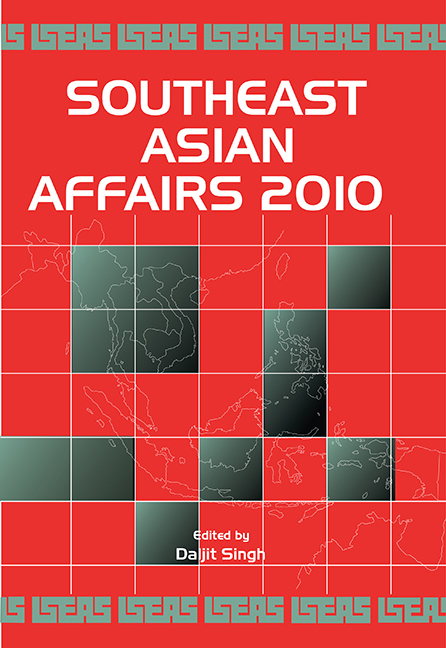Singapore in 2009: Braving a Grave New World
from SINGAPORE
Published online by Cambridge University Press: 21 October 2015
Summary
For a proper perspective of what the year 2009 was like for Singapore, it would be useful to note what it was not. It was not like the years between 2004 and 2007. These were very good years for Singapore, with growth averaging almost 8 per cent. Neither was it quite like 2008, when the spillover optimism of the previous two years flowed through for about half the year. Indeed, 2008 had brimmed with promise. Singapore's global city credentials received a boost when it won the bid to host the first-ever Youth Olympics Games (YOG) in 2010. In September 2008, the dazzlingly lit Singapore skyline impressed the world as the inaugural Singapore leg of the Formula One Grand Prix race made its debut with the first night race in the series.
Yet, even as the champagne flowed at the glamour event, a global financial crisis was already brewing. With its strong external orientation, the Singapore economy has always been vulnerable to global economic shocks. And so the party that lasted almost five years had to end.
In the third quarter of 2008, Singapore fell into its first recession since 2002, becoming the first Asian economy to do so. More bad news followed as the year turned. Singapore plunged deeper into recession in the fourth quarter of 2008 as gross domestic product (GDP) marked its biggest quarterly decline on record. Growth for the year 2008 was an anaemic 1.1 per cent. Early government projections of a 1 to 2 per cent contraction in the Singapore economy for 2009 were quickly revised downwards to a contraction of 2 to 5 per cent. This set the stage for a sobering 2009 as Singapore braced itself for the full impact of the stricken global economy. With the country in such a mood, it was not surprising that Singapore marked fifty years of self-government quietly with little public celebration.
Economic distress brings social and political consequences as well. As it was, there were large demonstrations and strikes in Europe as people rallied against the economic fallout from the excesses of the global financial system. In Singapore, the socio-economic impact of the crisis was not lost on the government.
- Type
- Chapter
- Information
- Southeast Asian Affairs 2010 , pp. 261 - 284Publisher: ISEAS–Yusof Ishak InstitutePrint publication year: 2010



